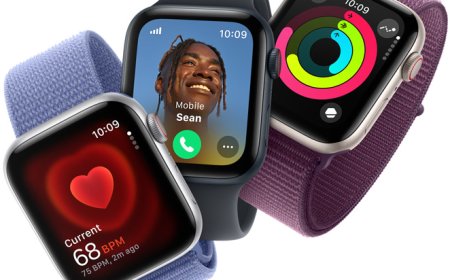Addressing Mobile App Security Breaches

Addressing Mobile App Security Breaches
In todays digitally connected world, mobile applications play a vital role in everyday life. From social networking and banking to education and entertainment, the widespread use of mobile apps has opened the door to tremendous opportunities and innovations. However, it has also introduced significant security concerns. With the increasing dependency on mobile apps, the risk of data breaches, identity theft, and unauthorized access has grown alarmingly high.
As a leading provider of mobile application development services, Pixel Genesys is committed to developing secure, robust, and scalable mobile applications. This blog explores the nature of mobile app security breaches, the common vulnerabilities, preventive measures, and best practices for maintaining app security in both Android and iOS environments.
Understanding Mobile App Security Breaches
A mobile app security breach refers to any incident where an unauthorized entity gains access to data or services within a mobile application. Such breaches can result in data leaks, financial loss, compromised user credentials, and reputational damage to businesses.
Some of the most well-known security breaches in mobile apps have involved:
-
Unauthorized API access
-
Insecure data storage
-
Poor authentication mechanisms
-
Code injection attacks
-
Malware embedded in apps
These breaches typically exploit weak points in the apps architecture or coding and can affect both Android and iOS platforms.
Common Causes of Mobile App Security Breaches
1. Insecure Data Storage
Sensitive user information such as credentials, tokens, and personal data is often stored locally on devices. Without encryption, this data becomes vulnerable to unauthorized access.
2. Weak Authentication and Authorization
Apps with poorly designed authentication systems are at high risk. Weak password policies, lack of multi-factor authentication (MFA), or inadequate session management can make it easier for hackers to gain access.
3. Insecure APIs
Application Programming Interfaces (APIs) are the backbone of mobile applications. If not secured properly, APIs can serve as entry points for attackers, allowing them to manipulate, access, or even destroy critical data.
4. Poor Code Quality and Obfuscation
Poorly written or un-obfuscated code can be decompiled and studied by attackers to find vulnerabilities. Reverse engineering of mobile apps is a common tactic used to exploit weaknesses.
5. Lack of Proper Encryption
Without strong encryption algorithms for data transmission and storage, sensitive information can be intercepted during transmission, especially over public Wi-Fi networks.
6. Third-Party Libraries and SDKs
Integrating third-party libraries without proper vetting can introduce vulnerabilities, especially if these libraries are outdated or malicious.
7. Untrusted App Distribution
Distributing apps outside of official app stores or through unofficial sources can result in tampered or infected versions being installed on users' devices.
Mobile Platform Security: Android vs iOS
Android App Security
Being an open-source operating system, Android offers greater flexibility but also faces more security challenges. As an experienced android app development company, Pixel Genesys follows strict guidelines to mitigate these risks:
-
Implementing the Android Keystore System to store credentials
-
Utilizing SafetyNet API to detect harmful apps
-
Encrypting all locally stored sensitive data
-
Using ProGuard for code obfuscation
-
Regularly updating and patching apps
iOS App Security
Apple maintains tighter control over its ecosystem, which contributes to a higher baseline of security. Nonetheless, iOS apps are still vulnerable if not developed correctly. With our iOS app development services, we focus on:
-
Using Keychain services to store sensitive data securely
-
Leveraging biometric authentication like Face ID and Touch ID
-
Enforcing App Transport Security (ATS) for secure connections
-
Implementing strong data protection APIs
Best Practices to Prevent Security Breaches
1. Adopt Secure Coding Practices
-
Follow OWASP Mobile Top 10 security risks
-
Sanitize all inputs to prevent injection attacks
-
Avoid hardcoding credentials or sensitive logic
2. Use Strong Authentication Mechanisms
-
Implement Multi-Factor Authentication (MFA)
-
Enforce complex password rules
-
Use OAuth 2.0 or OpenID Connect for secure authentication
3. Secure Data Storage
-
Use encrypted containers for local data
-
Minimize data retention
-
Use secure cloud storage services with proper access control
4. Conduct Regular Security Testing
-
Perform static and dynamic code analysis
-
Run penetration tests and vulnerability scans
-
Use third-party tools to monitor threats in real-time
5. Employ Secure APIs
-
Validate input/output of all APIs
-
Rate limit API requests to prevent abuse
-
Use HTTPS with valid SSL certificates
6. Code Obfuscation and Tamper Detection
-
Obfuscate code to make reverse engineering harder
-
Implement root/jailbreak detection to prevent unauthorized app usage
7. Ensure Compliance with Standards
-
Follow GDPR, HIPAA, PCI-DSS, or other applicable regulations
-
Maintain privacy policies and user consent mechanisms
The Role of DevSecOps in App Security
DevSecOps integrates security practices within the DevOps process. By incorporating security at every stage of app development, Pixel Genesys ensures that potential vulnerabilities are addressed early. Key components include:
-
Security Automation: Integrate tools to detect security issues during CI/CD pipeline.
-
Threat Modeling: Predict and address potential threats during design.
-
Secure Release Management: Ensure secure deployment of app updates.
Case Studies and Real-World Examples
Tech Games DefStartup
Tech Games DefStartup, a rising player in the mobile gaming industry, faced frequent login-based breaches during beta testing. By partnering with Pixel Genesys, they integrated multi-factor authentication, secure login APIs, and real-time activity monitoring. The result? A 95% reduction in unauthorized access attempts within the first three months.
App Ideas for Students
Educational apps often store sensitive student data. One such project based on App Ideas for Students required strict security measures due to its focus on minors and academic data. Our team ensured compliance with FERPA and implemented end-to-end encryption and secure parental control features.
Future of Mobile App Security
With the advancement of technologies such as AI and IoT, mobile app security must evolve as well. Some of the emerging trends include:
-
Behavioral Biometrics: Analyzing user behavior for authentication
-
AI-Powered Threat Detection: Leveraging machine learning to predict and prevent threats
-
Zero Trust Architecture: Continuous verification instead of implicit trust
-
Blockchain for Security: Decentralized security models for sensitive transactions
Conclusion
Security is not a one-time task but an ongoing responsibility. As mobile apps continue to permeate every aspect of life, prioritizing security is non-negotiable. Whether you're an android app development company, iOS-focused team, or working on innovative App Ideas for Students, safeguarding user data must be at the forefront.
Pixel Genesys stands as a trusted partner in delivering secure, user-friendly, and high-performing applications. With our comprehensive mobile application development services, we ensure that your app is built to withstand modern security threats while offering an exceptional user experience.
Looking to build a secure mobile app? Contact Pixel Genesys today and let our team help you turn your idea into a secure reality.
































